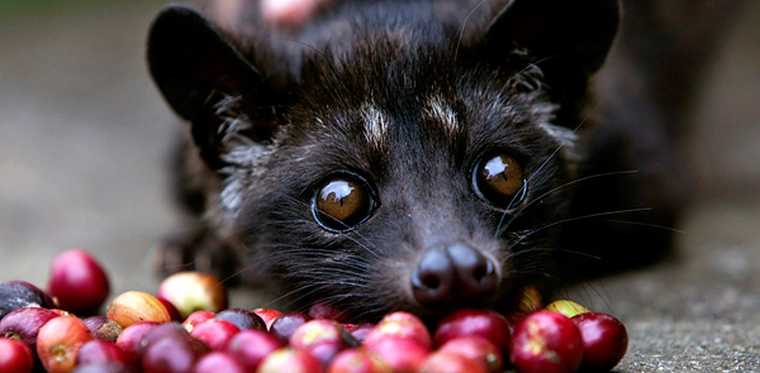The Asian palm civet is a small, nocturnal mammal that lives in the trees and forests of South and Southeast Asia. Asian palm civets are believed to be one of the most common species of civet, however, growing demand for civet coffee, or Kopi Luwak as it is also known in Indonesia, has led to an increase in civets being captured from the wild and fed coffee beans to produce this unusual beverage.
Civet coffee is produced across the island of Bali by civet ‘cats’ kept in cramped, barren cages to produce gourmet coffee for visiting tourists.
Researchers from World Animal Protection have discovered that this novelty drink is on the rise with more than 16 different civet coffee plantations emerging along one popular tourist highway of Gianyar and Bangli in Bali in the last five years alone.
The study also revealed that 16 new plantations were all intended for international tourists visiting Bali. 14 of the 16 plantations produced the caged civet coffee on-site, and two plantations that did not produce caged coffee on-site confirmed that they kept civets in cages purely as a tourist attraction to illustrate to tourists how the coffee is made.
“When tourists see the caged civets, it helps to convince them that they are drinking genuine real civet coffee as part of their tour. Sadly, many tourists are blind to the cruelty associated with caged civet coffee and even line up to take a photo to share on social media,” said Dr. Neil D’Cruze, Wildlife researcher at World Animal Protection.
The cramped cages in which civets are kept have wire floors that cut into their feet causing them physical and mental distress. They do not have shelter to hide. Many of the civet coffee farmers are uneducated on how to care for their animals, and the civets often become ill or die, all in the name of coffee.
Any tourists tempted by the novelty should only choose ‘cage-free’ civet coffee instead, which is good for wild animals, good for conservation, good for coffee connoisseurs and good for rural communities, who can continue to generate an income from tourists ,says World Animal Protection.
















